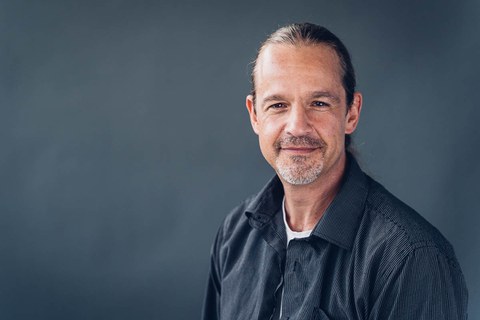27.01.2021
Prof. Federico Calegari ist neuer Institutsdirektor des CRTD

Prof. Federico Calegari
Seit dem 1. Januar 2021 ist Prof. Federico Calegari Direktor des Zentrums für Regenerative Therapien Dresden (CRTD) an der TU Dresden. Er tritt die Nachfolge von Prof. Michael Brand an, der das Institut in den letzten zwei Jahren geleitet hat.
"Es ist ein großes Privileg und eine große Verantwortung, das CRTD in den kommenden Jahren zu repräsentieren. Ich bin seit fast 15 Jahren Teil des CRTD und in dieser Zeit habe ich gesehen, wie es sich weiter entwickelt hat. Das CRTD gewinnt mehr und mehr internationale Sichtbarkeit und Prestige. Das wäre ohne das Engagement und die Vision der vielen außergewöhnlichen Menschen, die hier arbeiten, nicht möglich", sagt Prof. Calegari. "Ich bin den CRTD-Forschungsgruppenleitern dankbar für ihr Vertrauen, mich zum neuen Direktor des CRTD zu wählen. Ich freue mich darauf, mit den Mitarbeitern unserer Forschungsgruppen, unserer hochmodernen Technologieplattform sowie unserer außergewöhnlichen Verwaltung zusammenzuarbeiten, um das CRTD zu einem inklusiven und dynamischen Ort zu machen, der unsere wissenschaftliche Träume möglich macht", ergänzt Prof. Calegari.
Federico Calegari ist seit 2014 Professor für Proliferation von neuralen Stammzellen von Säugetieren an der TU Dresden. Seine akademische Karriere begann am CNR - Center of Cellular Pharmacology in Mailand, Italien, wo er sein Promotionsstudium abgeschlossen hat. Im Jahr 2001 ist er als Postdoktorand nach Dresden in die Forschungsgruppe von Prof. Wieland Huttner am Max-Planck-Institut für Molekulare Zellbiologie und Genetik (MPI-CBG) gekommen. Im Jahr 2007 hat er seine eigene Forschungsgruppe am Zentrum für Regenerative Therapien Dresden (CRTD) der TU Dresden gegründet.
Professor Calegari und seine Arbeitsgruppe erforschen die Vermehrung und Differenzierung von neuralen Stammzellen, den Zellen, aus denen alle Neuronen im Gehirn entstehen. Die Gruppe beschäftigt sich mit den Fragen: wie bildet sich das Gehirn während der Entwicklung und wie funktioniert das Gehirn im Laufe des Lebens? Das langfristige Ziel der Arbeitsgruppe von Calegari ist es, ein ausreichendes Verständnis der molekularen Prozesse zu entwickeln, um die Kontrolle über die neuralen Stammzellen zu erlangen und sie zu nutzen, um alters- oder krankheitsbedingte Defizite im Gehirn zu beheben.
